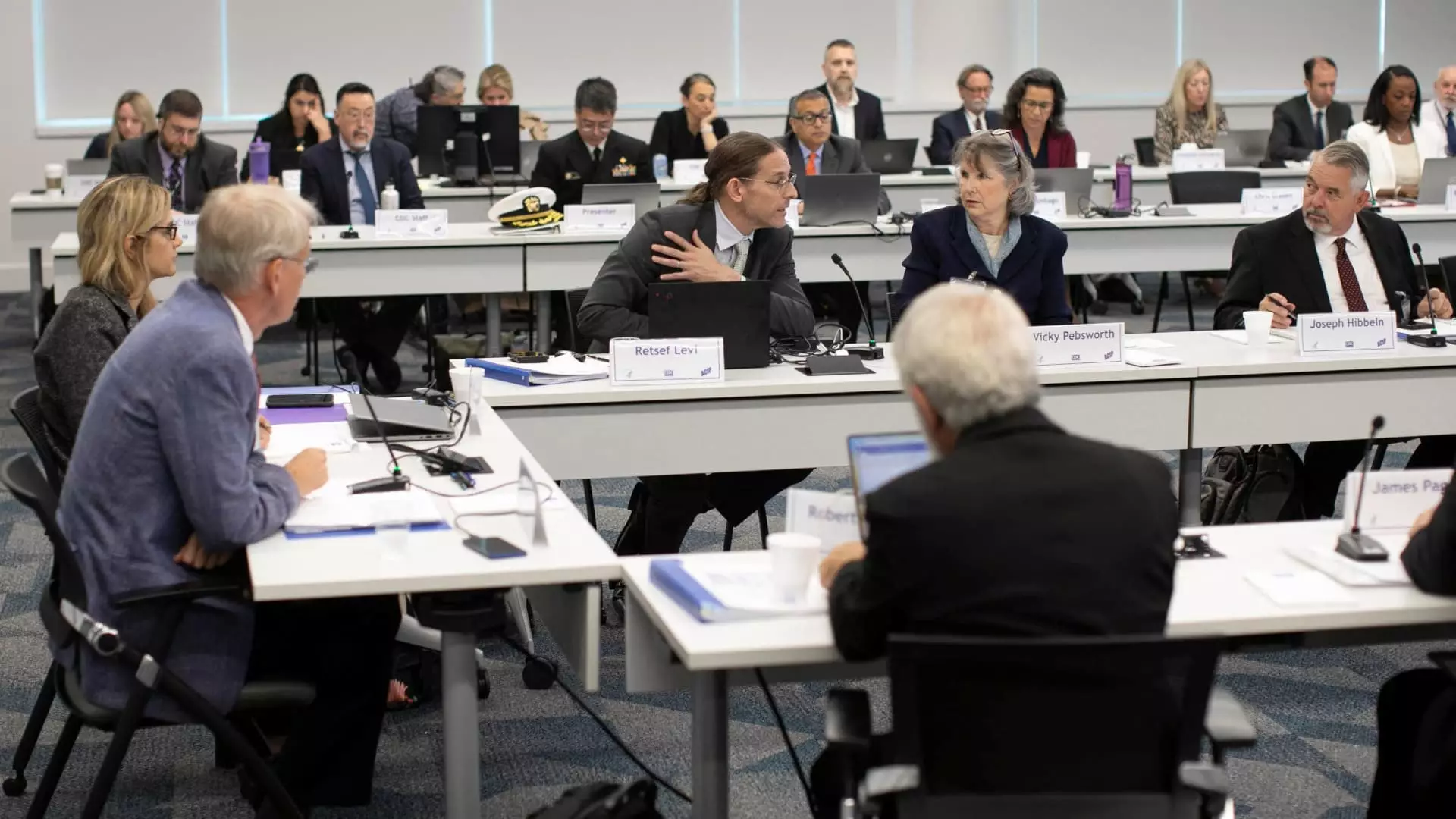Recent developments in U.S. vaccine policy reveal a troubling trend: political motives are increasingly influencing public health guidance, going beyond evidence-based recommendations. The decision by Robert F. Kennedy Jr.’s hand-picked advisory panel to weaken existing COVID vaccine guidelines exemplifies a concerning pattern where scientific integrity is compromised to fit a particular narrative. Instead of advocating for clear, consistent guidance rooted in extensive research, the panel’s new stance emphasizes individual choice over collective community protection, sowing confusion and skepticism among the public. This shift is not merely a bureaucratic redefinition—it impairs public trust, a critical component in managing any health crisis effectively.
The decision to endorse “shared clinical decision-making” as a primary approach represents a significant departure from previous years when universal vaccination was the norm. While personal autonomy is essential in a liberal society, when it replaces robust public health directives, it risks undermining efforts to combat contagious diseases. The move subtly shifts responsibility from health authorities to individual consumers, who may lack the necessary expertise to make fully informed choices, thereby increasing the chances of vaccine hesitancy or outright refusal.
In many respects, this policy change is emblematic of a broader distrust in government-led health initiatives, fueled by political interference and misinformation. The influence of Kennedy—who has openly been critical of mRNA vaccines—on the advisory panel raises valid concerns about whether decisions are rooted in scientific evidence or political expediency. When expert consensus is replaced by politicized skepticism, it risks creating a polarized environment where public health is compromised—not just by the virus itself, but by the erosion of confidence in the very systems designed to protect us.
The Dangerous Consequences of Politicizing Public Health
The ramifications of the vaccine recommendations are far-reaching. Weakening the guidance—from universal vaccination to a limited focus on high-risk populations—may lead to lower vaccination rates, especially among younger healthy individuals. This undermines herd immunity, allowing the virus to circulate more freely, potentially spawning new variants that threaten even the most vaccinated.
Moreover, the inconsistency between federal recommendations and some state policies exacerbates fragmentation. While certain Democratic-led states recommend broad vaccination, federal guidance now emphasizes caution and individual discretion. This conflicting messaging confuses the public and erodes the unity necessary for effective disease control. When large insurance providers—like Blue Cross Blue Shield, CVS’ Aetna, and Kaiser Permanente—commit to covering vaccines regardless of these political developments, it exposes the disconnect between policy and practice. Insurance coverage alone cannot compensate for the message that the vaccine’s importance is being diminished; trust and clarity are indispensable.
Adding fuel to the fire are internal debates among scientists and health professionals, many of whom question the safety and efficacy of the mRNA technology. The inclusion of panel members openly skeptical of the technology’s reliability signals a troubling capitulation of scientific rigor to political influence. This undercuts decades of research confirming the safety of mRNA vaccines—vaccines that have, by most estimates, saved millions of lives worldwide. When expert voices that support vaccine safety are marginalized and replaced with critics focused on questioning results, the consistency and integrity of public messaging suffer.
This fragmentation and skepticism are dangerous. Immunization efforts rely heavily on public trust—without it, herd immunity becomes a distant target, and the public bears the brunt of preventable illnesses. Opponents may view this shifting stance as political tokenism, but from a moral perspective, it’s a failure in leadership that could cost lives in the long run.
Recognizing the Power of Evidence—and the Risks of Misinformation
While critics of the current policy emphasize personal choice, it’s imperative to recognize the weight of the scientific evidence confirming the safety and efficacy of COVID vaccines. Multiple peer-reviewed studies and decades of vaccinology research support their role in saving lives and reducing severe outcomes. To dismiss these and frame vaccination as a matter of individual preference, especially amidst a global health crisis, reflects a dangerous neglect of collective responsibility.
However, the rise of political interference, amplified by a distrust in government and scientific institutions, fuels misinformation and complacency. This environment permits voices skeptical of vaccines to gain prominence, further polarizing the debate. The suggestion that mRNA technology may be ineffective or unsafe—despite the extensive data supporting its utility—casts doubt on decades of biomedical research and the efforts of scientists dedicated to public health.
This scenario is emblematic of a broader challenge: how to balance respect for individual autonomy with the necessity of safeguarding community health. The liberal ideal upholds personal freedom, but it also recognizes the importance of collective action, especially when individual choices can endanger others. Politicizing vaccine guidance dilutes this delicate balance and threatens to undo the progress made since the earliest days of the pandemic. It is vital that public health policies remain rooted in rigorous science, not political expediency, to preserve credibility and public safety.
The recent shifts in U.S. COVID vaccine policy underscore a troubling trend of politicization and misinformation undermining scientific consensus. Public health relies on trust, clear messaging, and evidence-driven recommendations—not on ambivalent narratives that serve political interests over collective well-being. The challenge moving forward is resisting these distortions and reaffirming a commitment to science-based policies that prioritize both individual rights and community health, without falling into the trap of fear-mongering or disinformation.

